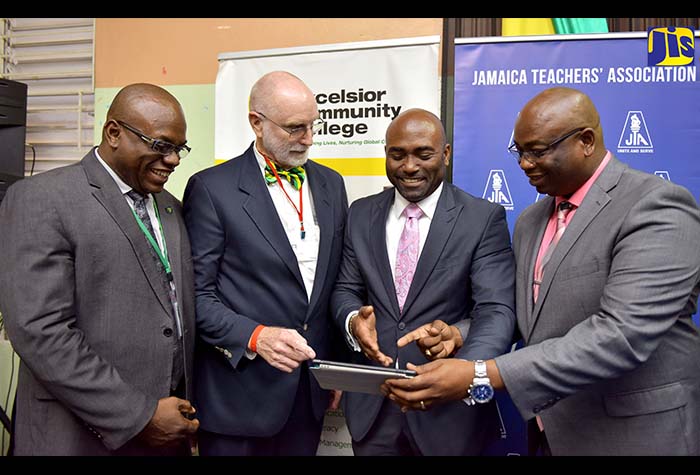TAP to Reach 2,000 Young People Next Year
By: , July 19, 2018The Key Point:
The Facts
- Science and Technology Minister, Dr. the Hon. Andrew Wheatley, made the disclosure while addressing the opening ceremony of the Excellence in STEM Experimental Education (EXSEED) workshop at the Excelsior Community College in Kingston on July 17.
- Spearheaded by the Universal Service Fund (USF), the initiative targets youths aged 18 to 35, providing them with practical training in information and communications technology (ICT) and job-readiness skills.
The Full Story
The number of beneficiaries under the Technology Advancement Programme (TAP) is set to double next year to reach 2,000 unattached youth.
Science and Technology Minister, Dr. the Hon. Andrew Wheatley, made the disclosure while addressing the opening ceremony of the Excellence in STEM Experimental Education (EXSEED) workshop at the Excelsior Community College in Kingston on July 17.
Spearheaded by the Universal Service Fund (USF), the initiative targets youths aged 18 to 35, providing them with practical training in information and communications technology (ICT) and job-readiness skills.
The first cohort of 1,000 persons completed a three-month course in June covering digitisation, data collection, office etiquette and procedures, professional conduct, résumé writing, interview skills, and basic entrepreneurial skills.
They are now being placed on a nine-month attachment at various public- and private-sector entities, where the stipend they received during the training course will increase.
The young people are expected to provide much-needed human-resource support to the Government in a bid to accelerate the ongoing digitisation process.
“We have gotten quite a number of requests from private-sector entities wanting to utilise the services of these TAP participants. The level of excitement among the young people is unbelievable,” Dr. Wheatley said.
Once the period of attachment is completed, it is hoped that the entities will recruit the participants full-time, or that the graduates will use the skills gained to secure employment elsewhere or start their own businesses.
Giving an update on the Tablet in Schools (TIS) Project, Dr. Wheatley indicated that steps are being taken to have the initiative fully roll out in the 2018/19 academic year, which starts in September.
He said that a “management system” installed on the devices will prevent students from accessing inappropriate content.
The TIS programme aims to provide students and teachers in public institutions with approved devices to enhance learning, facilitate research, and build competence in the use of technology.
It is in keeping with the Government’s efforts to build a knowledge-based society.

